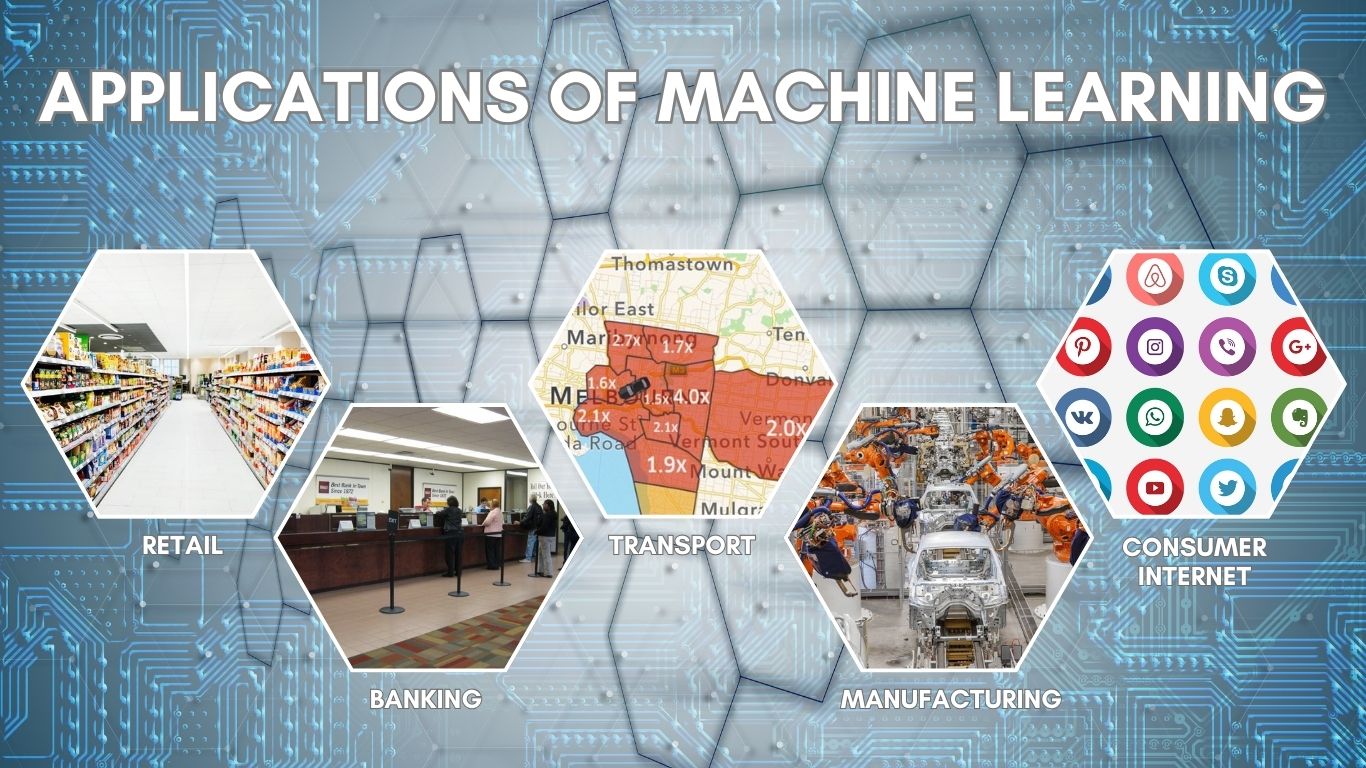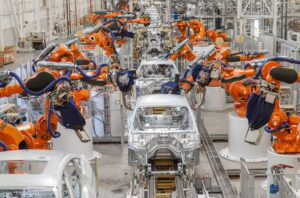We see diverse applications of Machine Learning across industries. Machine Learning (ML), a catalyst for innovation, has revolutionized various industries, unlocking new possibilities and enhancing efficiency. Let’s explore the transformative Real Life Machine Learning Applications across diverse sectors.
Retail: Enhancing Customer Experience
Application of ML in Retail:
- Personalized Recommendations: ML powers recommendation engines, offering tailored product suggestions based on customer behavior and preferences.
- Demand Forecasting: Predictive models optimize inventory management by forecasting demand, minimizing stockouts, and reducing excess inventory.
- Dynamic Pricing: Algorithms adjust prices in real-time based on market demand, competitor pricing, and customer behavior.
Banking and Finance: Optimizing Operations
Application of ML in Banking and Finance:
- Fraud Detection: ML models identify fraudulent activities by analyzing transaction patterns and detecting anomalies.
- Credit Scoring: Predictive models assess credit risk by analyzing customer data, streamlining loan approval processes.
- Algorithmic Trading: ML algorithms analyze market trends and patterns for automated trading decisions, improving investment strategies.
Transport: Enhancing Efficiency and Safety
Application of ML in Transport:
- Route Optimization: ML-powered algorithms optimize routes for logistics and transportation, reducing delivery times and fuel consumption.
- Predictive Maintenance: Analyzing sensor data helps predict maintenance needs, preventing breakdowns and improving vehicle uptime.
- Autonomous Vehicles: ML enables self-driving technologies by processing real-time data for navigation and decision-making.
Manufacturing: Driving Automation and Precision
Application of ML in Manufacturing:
- Predictive Maintenance: ML models forecast equipment failures, minimizing downtime and optimizing maintenance schedules.
- Quality Control: Image recognition and sensor data analysis ensure product quality by identifying defects in real-time.
- Supply Chain Optimization: ML streamlines supply chains by predicting demand, reducing lead times, and enhancing efficiency.
Consumer Internet: Enhancing User Experience
Application of ML in Consumer Internet:
- Content Personalization: ML algorithms personalize content, recommendations, and advertisements based on user preferences.
- Natural Language Processing (NLP): Chatbots and virtual assistants utilize NLP to engage users and provide instant support.
- Sentiment Analysis: Analyzing social media data helps gauge public sentiment, guiding marketing strategies and brand perception.
Machine Learning’s transformative potential spans across diverse sectors, powering innovation and efficiency. From personalized retail experiences and enhanced financial operations to streamlined transportation and precision manufacturing, ML continues to redefine how industries operate. As businesses harness the capabilities of ML, the landscape of possibilities grows, paving the way for a future driven by intelligent automation, informed decision-making, and enhanced customer experiences across industries.






